Services for Pediatrics
Compassionate medical care for children, from newborns to teens, ensuring healthy growth every step of the way.
Comprehensive health check-ups to monitor your baby’s growth, development, and overall well-being from birth onward.
Personalized care for children and teens, focusing on physical, emotional, and developmental health needs.
Safe and reliable immunization services for all ages to protect against preventable diseases.
Online Consult
Need to consult your pediatrician, but unable to visit the clinic?
You may schedule an online teleconsultation for your convenience.
Please be reminded, however, that a virtual consultation is not a substitute for an in-person visit, as a complete physical examination cannot be performed online.
Should it be necessary, your pediatrician will recommend a face-to-face consultation.
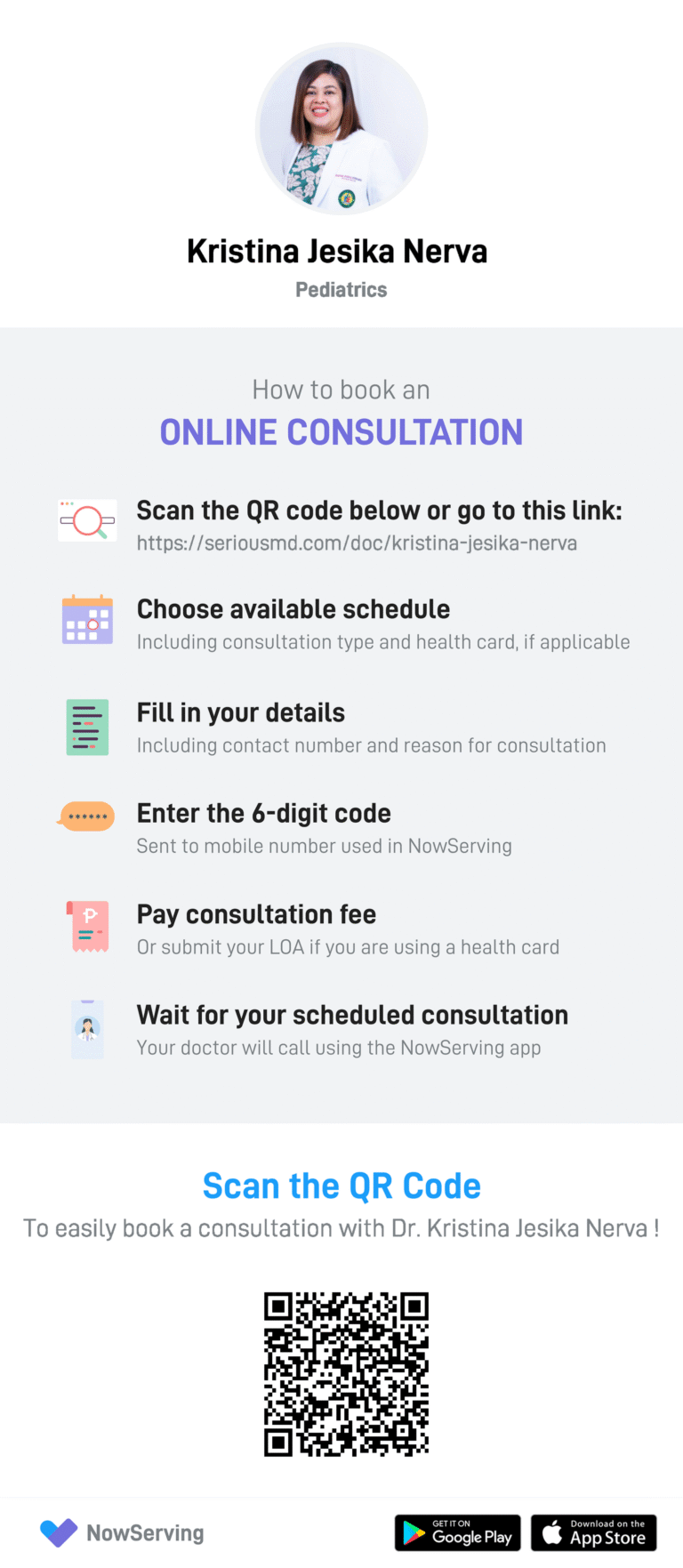
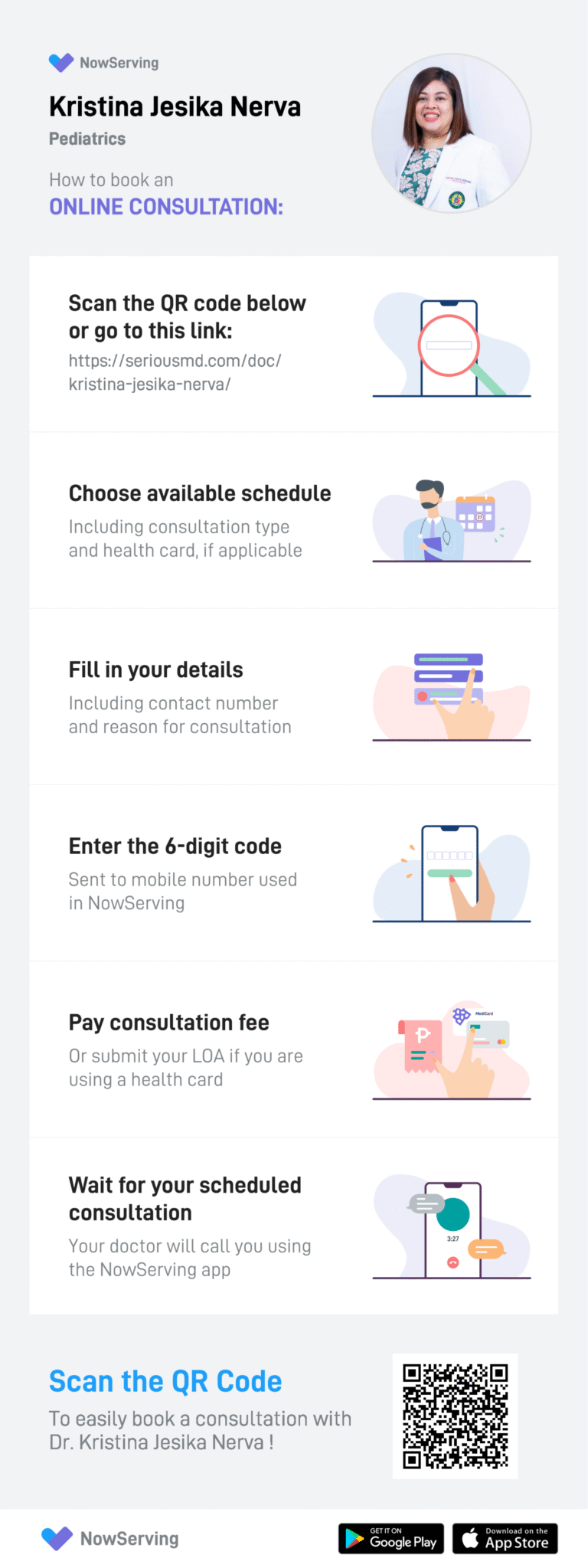

Ear Piercing After Care
Avoid touching the new piercings, except when cleaning them.
Always wash your hands with soap and warm water before touching the ears or earrings.
Clean the entire area surrounding the piercings (front and back) daily with 70% solution.
Always keep the ears dry.
Be careful not to pull or push on the piercings when brushing hair.
Avoid swimming in pools, hot tubs, lakes and oceans while the piercings are healing because this could increase the risk of infection.
Childhood Immunization Schedule 2025
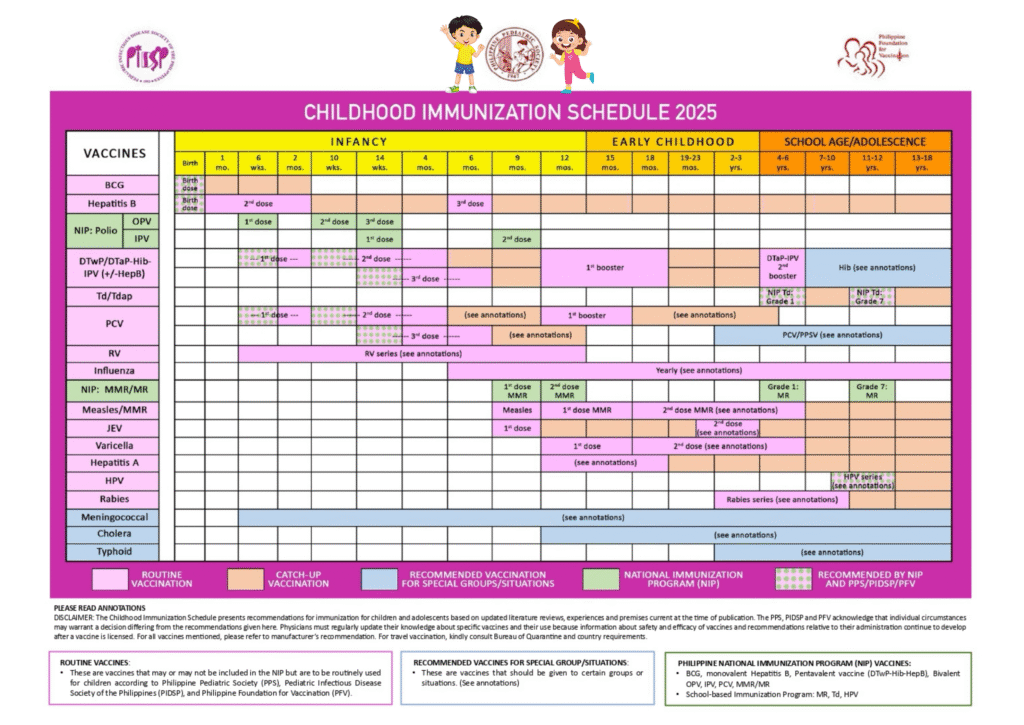
A Practical Guide to
Newborn Care
Welcoming a newborn into your life is a deeply emotional and transformative experience—whether it’s your first child or your fifth.
No two babies are the same, and even experienced parents often find themselves learning new things with each little one.
This guide offers practical tips and gentle reminders to help all parents—new and seasoned—navigate the early weeks of newborn care with confidence and calm.
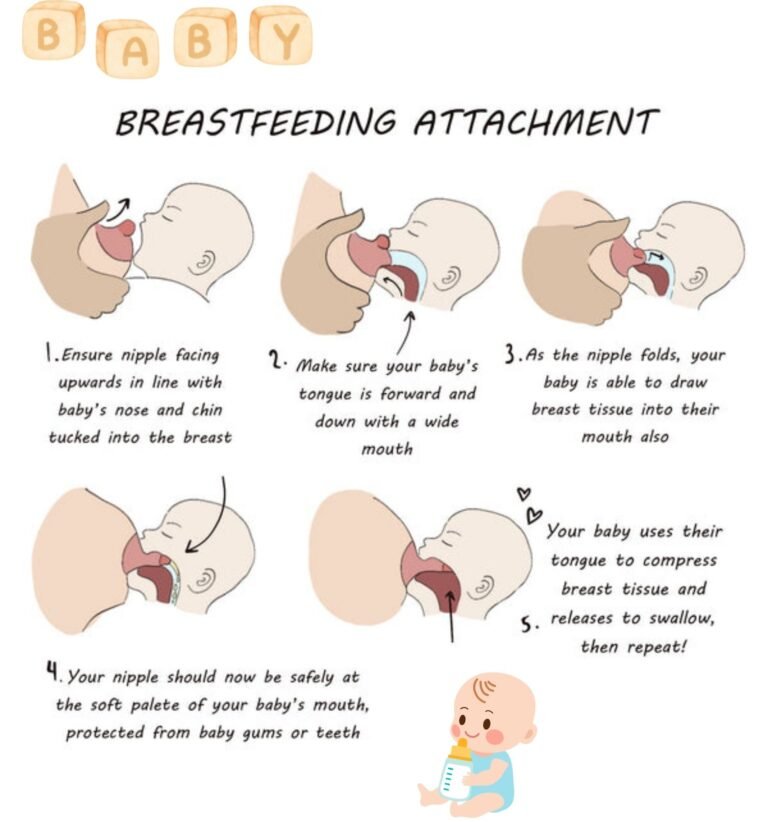
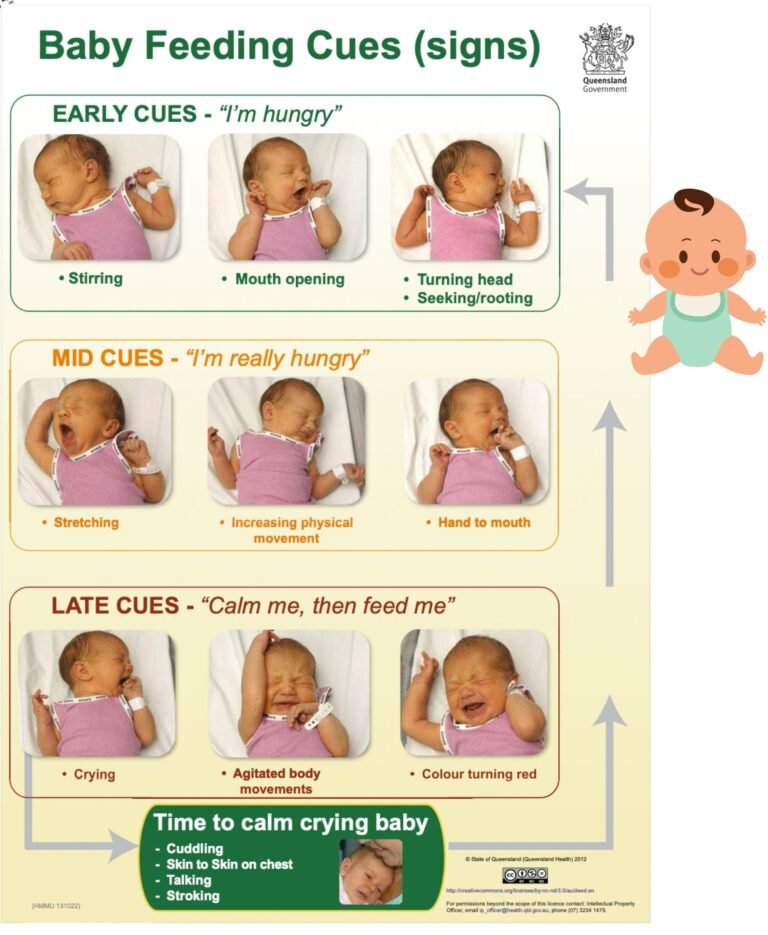
Breastfeeding
Breastmilk is the ideal food for infants. It is safe, clean and contains antibodies which help protect against many common childhood illnesses.
Breastmilk provides all the energy and nutrients that the infant needs for the first months of life.
Babies usually feed every 2–3 hours. Let them nurse on demand, especially in the first few weeks to establish supply.
Watch for signs of hunger rooting, sucking on hands, fussiness, or lip smacking.
1. Early Initiation:
Begin breastfeeding within the first hour of birth to establish milk supply and facilitate a strong emotional bond.
2. Proper Latch:
Ensure the baby’s mouth is wide open and covers most of the areola (the dark area around the nipple) for effective sucking and to prevent pain.
3. Seek Support:
If you experience pain, soreness, or any concerns, consult a doctor or a lactation consultant.
Bathing
The World Health Organization (WHO) recommends delaying baby’s first bath until 24 hours after birth—or waiting at least 6 hours.
Babies who get baths right away may be more likely to become cold and develop hypothermia
Taking the baby away for a bath too soon can interrupt skin-to-skin care, mother-child bonding and early breastfeeding success
Vernix, a waxy white substance that coats a baby’s skin before birth, acts as a natural moisturizer and may have anti-bacterial properties
Umbilical Cord Care
Most often, the stump falls off 1 to 3 weeks after birth
Keep the stump dry
Clean any dried blood, fluid, or dirt that comes in contact with the stump
Clean with warm water and cotton buds from the base upwards
Consult your Pediatrician if there is redness, swelling, oozing of blood, or foul-smelling discharge


Sleep, Play and Bond
Babies sleep for more than 16 hours a day with a brief waking period of 2-4 hours for feeding
Always place the baby on their back when sleeping, keep their area free from blankets, loose clothing, pillows or toys
Play with your newborn such as singing, reading, and talking
No screen time or use of gadgets for babies and newborns 18 months and below
FAQ Pediatrics
If your child misses a vaccine appointment, don’t worry you can still get them back on track. Contact us as soon as possible to create a catch up schedule. Delaying vaccines can leave your child vulnerable to preventable diseases, so it’s best to update them promptly.
If your child is under 3 months old and has a fever of 38°C (100.4°F) or higher, Contact Us immediately. For older children, Call Us if the fever lasts more than 3 days, is very high, or is accompanied by symptoms like difficulty breathing, rash, or unusual lethargy.
Bring any past medical records, vaccination history, and a list of questions or concerns. For younger children, you can explain in simple terms what will happen during the visit and bring a comfort item, like a favorite toy, to help them feel at ease.
For infants, visits are usually more frequent often at 1, 2, 4, 6, 9, and 12 months. After age 2, annual check-ups are recommended to monitor growth, development, and overall health.
Seek immediate care if your child has a high fever that won’t go down, trouble breathing, seizures, severe dehydration, persistent vomiting, or an unusual rash.
Always consult your pediatrician before giving any medication, as dosing for children depends on weight, age, and medical history.
Ensure they have a balanced diet, enough sleep, regular physical activity, and good hygiene habits like handwashing. Vaccinations are also key to strong immunity.
Many children go through phases of picky eating. Offer a variety of healthy options, avoid forcing food, and keep mealtimes relaxed. If you notice poor growth or extreme food refusal, consult your pediatrician.
Core vaccines include those for measles, mumps, rubella, polio, hepatitis B, diphtheria, tetanus, pertussis, and influenza. Your pediatrician will follow the official immunization schedule.
Pediatricians use growth charts and developmental milestones (like sitting, walking, and talking) to track progress. If you’re concerned about delays, discuss them early so interventions can be started if needed.
Yes. The flu virus changes each year, so annual vaccination is the best way to keep your child protected.
Young children can have 6–8 colds a year, especially if they attend daycare or school. Most are mild, but if symptoms last more than 10 days or worsen, visit Klinik for consultation.
Most children get what they need from a balanced diet. Vitamins may be recommended for picky eaters, children with certain medical conditions, or those on restricted diets visit Klinik for consultations.
KIDS AND SKIN KLINIK
Trusted healthcare that listens to your needs.
Make an Appointment
- + 63 915 - 340 - 1218
- @klinikidskin
Opening Hours
Monday - Friday
09:00 - 12:00
13:00 - 17:00
Saturday
10:00 - 12:00
13:00 - 17:00
Dayangdang St., Naga City
(Infront of Lawrence Café)
Pediatrics: + 63 915 - 340 - 1218
Dermatology: + 63 967 - 322 - 6699
@klinikidskin



